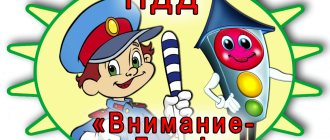ABOUT OUR MAGAZINE
The children's magazine "Firebird" is created by our creative team in the traditions of humane pedagogy , which allows us to develop our children in many ways: spiritually, morally, intellectually, communicatively, creatively and physically and help them become noble and harmonious people, as well as think about their place and purpose in the world. With our texts we try to awaken the good feelings of children, to “reach out” to their hearts, we teach children to think, reflect, analyze, have their own opinions, draw conclusions, make decisions, create and create. The magazine is not only a carrier of new and exciting information, but also a means of communication, multifaceted creativity, and an assistant to our children in mastering educational programs.
The main character of the magazine, the Firebird (symbol of Light and Knowledge) , invites the reader on a fascinating journey through the pages of each issue. On her behalf, all materials are presented in poetic form - educational articles, parables, fairy tales, stories, interviews, quizzes, crosswords, creative tasks, master classes.
The magazine's versatile, educational material, presented in a fun way, teaches children to distinguish good from evil , to sensitively feel nature and the planet, to understand that everything on it is alive and created for our harmonious and happy life. That we all - each of us - are responsible for what happens on the planet, in our country, in our city and in our family.
To enhance children's independent activity, the magazine's texts are equipped with developmental tasks . They encourage children to think and analyze independently, think about life, help them engage in creativity and discover their talents; develop a holistic perception of the world and understanding of the laws of the universe; foster respect for our origins and the spiritual culture of our ancestors.
The most important task of the magazine is to develop children’s interest in reading and develop the ability to understand the meaning of texts of various genres. Through texts, we reveal to our young readers the real (as opposed to the virtual) world in all its beauty and greatness.
The magazine will undoubtedly be useful to teachers for organizing classes , extracurricular and project activities of students. And, of course, to parents and grandparents who want to make their children’s leisure time meaningful, educational and morally oriented.
We invite you to dialogue and cooperation and are waiting for letters to
DIGITAL VERSION OF THE MAGAZINE
In addition to the printed version, the magazines also have a digital version with a 3D multimedia application (containing educational cartoons, educational videos, master classes, creative works of children, films, wonderful music, various audio and video files on the topic of the issue). The digital version can be downloaded to your tablet or computer using the QR code located at the end of the magazine.
Fairy tale on career guidance for children 6-12 years old
Career guidance fairy tale for children from 6 to 12 years old “The Legend of a Boy”
Author: Korotaeva Irina Vladimirovna, teacher-psychologist MBDOU “Kindergarten of a general developmental type No. 2 in the village of Maslova Pristan.”
Career guidance begins in childhood, when we still play with dolls, draw patterns, drive cars and choose many different forms of activity for games. And as we grow up, we choose the professions of teachers, architects, drivers and many others. Due to the relevance of this topic, I bring to your attention a career guidance fairy tale that can be used by educators, psychologists and teachers in working with children from 6 to 12 years old, “The Legend of a Boy.” Goal: to convey to children the importance of professional self-determination. Objectives: - show children the importance of independent choice; - instill a desire to achieve goals. ***** Once upon a time in Ancient Rome there lived a boy, Aron, who was very capable. Whatever he undertook, he managed to complete everything with unprecedented ease, be it hard physical work or mental work that required logic and rational decisions. In Ancient Rome, education was structured in three stages. The first stage of education was available to every child, regardless of social status and financial situation. The second stage depended on how high and high-quality your knowledge was, and also whether it corresponded to further training. But the requirements at the second stage were very high, so that in rare cases, only a few continued their studies along with those who were from noble families. What can we say about the third stage... only the offspring of the nobility were trained in it. The end of Aron’s education was already approaching and it was necessary to make further very important choices that would pave the inevitable path in life... Aron’s family was poor enough for him to continue his studies at further levels and Aron’s parents insisted that he take up a craft business, which in essence involved a huge expenditure of effort and little profit... The boy’s friends invited him to come with them and choose the profession of stercorarius. It involved cleaning waste from sewers. At that time, this profession was new and not yet widespread. Teachers talked to him about working as a cubicular because of his easy-going nature and ability to find a common language with everyone. Today this profession is known as servants. Aron was thinking for a long time, it was difficult for him to make a choice, not only because he was pressured from all sides and persuaded, but also because there were other professions. But soon Aron made his choice. After all, the choice of profession must be made by the person himself, this is his future life and he decides for himself: whether it will be joyful or miserable... Having completed the first stage of education, he entered the second. And during his second-level studies, Aron worked in his free time. Thus, he saved up for higher education. The path he chose was very difficult. Some time passed, and Aron successfully completed his studies. Later he was an assistant to the rulers, and then the ruler himself... The essence of the legend says: make your own choice, strive to achieve your goal and even if the path is not easy, achieve your goal. After all, you are capable of much and this is your life.
We recommend watching:
Summary of a lesson on speech development in 1st grade on the topic: Professions A fairy tale about a Hedgehog for children 5 - 10 years old A fairy tale in Russian and English for elementary school The Adventures of Violets and Lilacs. Fairy tale for children in two languages
Similar articles:
Class hour. Career guidance, 3rd grade
Game program for career guidance in elementary school
Class hour “All professions are needed, all professions are important”, 4th grade
Children about the artist profession
Children about the accounting profession
Option 3.
A story about the profession of a firefighter for grade 2
My uncle Petya works as a fireman. This is a very difficult and dangerous profession, but my uncle loves it very much and does not regret at all that he became a firefighter.
Since childhood, he dreamed of becoming a firefighter, and loves to remember how he and his friends extinguished dry grass near the house.
Even then, my uncle liked fighting fire, and he decided that when he grew up, he would become a firefighter.
He served in the army and then got a job in the fire brigade. Now he is the head of the crew and often goes to fires.
The work of a firefighter is very important and responsible, because human lives and the safety of property depend on how quickly firefighters put out a fire.
My uncle is proud of his work and often talks about how he once pulled a little girl out of a burning house.
I also want to become a firefighter when I grow up and save people from fire.
Option 4.
A story about the teaching profession for 2nd grade
My aunt works as a teacher at school. She says that since childhood she really liked to imagine herself as a teacher. She planted dolls opposite her and taught them.
My aunt studied very well at school and already made her choice of profession.
She dreamed of teaching other children the way her beloved teacher Olga Ivanovna did. Therefore, after school, my aunt entered the Pedagogical Institute and studied to become a teacher of geography and biology.
She went to work at the school and began teaching biology classes. She really likes this work, although her aunt says that she gets very tired. She always teaches children very responsibly, but the aunt says that when communicating with her students she herself feels younger.
Last year, my aunt took part in the “Teacher of the Year” competition and received an honorable third place. She is happy that she fulfilled her childhood dream.
I also want to become a teacher when I grow up, but for this I need to study well, be disciplined and responsible. And most importantly, the teacher must love children.
Option 5.
A story about the profession of a policeman for grade 2
My dad works in the police. He is a senior investigator. This is an important and responsible job. The Pope investigates various crimes, restores justice and makes sure that every person follows the law.
Police work is difficult and sometimes dangerous. After all, a police officer protects people from criminals, protects their lives and property. Unfortunately, there are still people who do not respect the laws of the country where they live. They take other people's things and hurt children and the elderly. Such people need to be put in prison so that they reform.
As a child, dad dreamed of becoming a sailor, but when he was fifteen years old, his apartment was robbed. The thieves stole many valuable things and then they were never found. And dad decided that he would become a policeman himself, so that no one else would suffer from injustice, from the actions of criminal elements.
Dad is proud and loves his job, and when I grow up, I will also become a policeman and protect the peace of other people.
Example of the project “Big Book of Professions” for 2nd grade
To view, click on the illustration and scroll through.
Source
Examples of essays on the topic of my future profession
Example 1: essay on the topic of my future profession - actor After graduating from school, the question arises: “Where to go next, and what to do.” It is better to decide in advance on the choice of your future profession. This is the first truly serious independent step in life. I really want to find my life's work. To become one with your profession. So that it brings good income, pleasure, and opportunities to develop. I would like to easily find a job in a profession where there would be interesting people and a close-knit team.
How to decide? Maybe you should ask your parents for advice. It’s so interesting when children continue the work of their parents. Work becomes a family affair, and the third generation produces the best specialists. The choice of a future profession should be based not so much on desire as on one’s abilities. A person is interested in doing what he is good at. This is probably a tendency. Unfortunately, our abilities are not always suitable for highly paid jobs.
As a child, I wanted to be a doctor, like my grandparents, mother and sister. Now, my desire has changed. I enjoy singing, reading and performing on stage. I want to immerse myself in theatrical life, try on different characters, play on stage in front of a full hall of spectators.
The acting profession requires a lot of effort and constant study. On stage, an actor must be sincere. Feel and love your role with all your heart. Actors are masters of disguise. People who are able to transform externally and internally into another person. After all, it’s not enough to put on a costume and a wig; you need to change your gait, facial expressions, gestures and even thoughts to suit your character. Pretense and falsehood are always noticeable. This profession is very difficult and very interesting. The actor brings culture and art to people.
To enter a theater university, you need to have brilliant skills and excellent knowledge, and most importantly, talent. I am not afraid of difficulties. Throughout my school years, I studied diligently and learned science. My favorite school subjects have always been Russian language and literature; unfortunately, I am less inclined towards exact sciences. Since the age of ten I have been involved in a theater club, learning to dance and singing in the choir. I try to develop my speech - I read a lot and pronounce tongue twisters. I think all this will help me when applying.
I often imagine myself on stage in front of an audience. From early childhood, my parents introduced me to the theater. We went to performances based on works of art. Perhaps this is where the love for literature came from. Once I had the opportunity to visit the backstage of the Bolshoi Theater, where I was able to feel the working atmosphere. The actors ran around frantically, put on costumes and wigs, and transformed into stage characters. That's when I realized that I wanted to be an actress.
The life of an actor is multifaceted. Throughout their creative journey, they are accompanied by communication with people, playing on stage, emotions, and rehearsals. Troupes travel to different cities with their performances. Each actor lives in the character and brings it to the viewer, and in return receives a charge of energy and positivity.
In addition to the positive aspects, the profession of an actor has its disadvantages. You need to work all the time, remember large amounts of information. The working day does not have a standardized schedule. Work and personal life are gradually intertwined. The fees in small theaters are small, so you always have to strive for more.
The demand for the profession is wide in large cities where cinematography is actively developing. It is important not to sit still, but to constantly look for uses for your talents. Aspiring actors go to theater and film auditions, but more often, they begin their careers as presenters of events.
However, the profession of an artist is very promising. With the ability to transform and use his talent correctly, an actor can find work in many fields. The best thing is to get on television and become recognizable to a wide range of viewers. In this case, fees will also increase.
I choose this profession for myself, despite the difficulties. There are many positive aspects to my future profession. The main thing for me is personal development and the constant desire to become better.
As they say: “find your own business, and you won’t work a day.” This is what you should strive for when choosing a profession.
Example 2: an essay on the topic of my future profession -
a doctor.
Each of us in childhood dreams of becoming someone when we grow up. Someone wants to become an astronaut, someone - an artist, someone - a politician or even a president. All our childhood dreams are mainly based on various fairy tales, films and fiction. But over the years, our choice becomes more conscious.
When I was little, I dreamed of being a ballerina. As a child, I attended a dance club, but not for long. Several moves affected my class attendance and I decided not to study anymore. And already at school I experienced a different attraction. I became more and more interested in anatomy. The structure of the human body, various features of our body. And my choice fell on the profession of a doctor.
In my opinion, a doctor is the most necessary and humane profession, as it is designed to help people. The doctor sacrifices his own interests for the benefit of others. There are no divisions for doctors based on race or religion. All patients are equal, everyone needs to be saved, even if they themselves are in danger.
Each doctor, depending on his specialization, fights an invisible enemy that attacks suddenly - viruses and diseases. Doctors care about the health of every person, which means they bear full responsibility for the life of humanity as a whole.
Doctor - that sounds proud! When you tell people that you are a doctor, people begin to trust you more, talk about their problems, and expect help and advice from you. The opinion of a doctor is more significant than the opinion of people of other professions. That is why, after analyzing various types of activities, I chose the profession of a doctor.
Example 3: essay on the topic of my future profession -
programmer When choosing a future calling in life (profession), it is important not to make a mistake.
I have friends who entered one educational institution and then went to another. Their future profession was often forced upon them by their parents. But from early childhood I firmly decided that I would be a programmer. We, modern children, master the computer very early. So I was already actively sitting at the computer when I was very young, I couldn’t even really speak yet. At the age of three I already knew the basics of a computer and could play music on it. At that time I liked the car racing game. Gradually, my knowledge deepened. At one time I was so engrossed in the computer that my head began to get tired. Although they tell me that I am very active.
Already in kindergarten, I decided to become a programmer and openly announced this to my parents. Mom took this calmly. But my father didn’t like my idea. He works as a boss and wants me to follow in his footsteps. But my friends say that I have a soft character. I myself understand that I will not be able to work in a leadership position. But parents love to impose their will on their children.
Now I have matured, I am already twelve years old. I'm already inventing new games and posting them on the Internet. I don't want to make money on a computer. I like to just invent. My parents sent me to the Aikido section. After all, without good physical shape it is difficult to become a programmer. In my city, I am even a champion in this sport.
English comes easy to me. I understand well that without knowledge of this language I cannot become a good programmer.
I have some shortcomings, I am not collected. But I even like working to eradicate it. I have perseverance. I can sit at the computer for several hours. Besides, nowadays a programmer is a very popular and well-paid job. All modern offices are equipped with computers. Many organizations want to have a competent programmer. And I strive to become a good specialist in this field.
Option 1.
A story about the profession of a doctor for 2nd grade
My dad works as a doctor in a hospital.
As a child, he was often sick and was often in the hospital. He saw how people suffered, how much pain they suffered, and decided that when he grew up, he would become a doctor to help people cope with illnesses, so that everyone in the world would be healthy and cheerful.
He graduated from school and first entered medical college. After graduation, dad entered college and studied there for several more years. After successfully graduating from the institute, dad studied for another two years in residency, did an internship in a hospital, and only then began to treat people on his own.
My dad is a very good doctor and he is loved and respected by both patients and colleagues. He always treats every patient with care and tries to cure everyone who comes to him.
The work of a doctor is one of the most important and responsible professions in the world. After all, people’s health depends on the work of doctors. When I grow up, I also want to become a doctor.
Story about profession: manager
An employee comes up to me with the question: “Tell me, who am I?” I answer: “Manager.” He, puzzled: “Yes, I know. We are all managers, and my grandfather was a manager...” He wanted to understand what he is an expert in, what makes him unique? Indeed, a manager is a “basic” and widespread business profession. It is so widespread that sometimes it seems that it is not even a profession, but a “substrate” for many professions and activities in business, a basic skill, a necessary condition for successful work in business.
How does is called?
Manager comes from the English verb to manage, which, in particular, means, and previously meant only this - to succeed, cope, cope. That is, a manager is the one who gets things done.
Today it means to manage, to lead. And if not people, then the process - to control the situation, find solutions, cope with the task.
At the dawn of domestic capitalism, managers were called everyone and even clerks, for example, a sales manager, a warehouse manager, an information technology manager. Apparently, this job title conveyed to the employee the message to be independent, effective, and responsible for his decisions.
Of course, managers are most often called managers, and, in the Western tradition, managers are top-level managers (more precisely, top managers), they rely on a layer of middle management (middle management), and they rely on lower-level managers (supervisors).
In our tradition, manager is a generalized name for managers at any level, as well as a designation for some specific positions that may not have subordinates, but solve organizational problems: HR manager, sales manager, advertising manager, etc.
Who becomes a manager?
There are specialized universities that train managers “in their purest form,” whose profession is to lead. But, as we said, managing is a necessary but not sufficient condition. You need to know the subject area in which management is carried out. Therefore, for example, the State University of Management trains managers in the fields of state and municipal administration, political technology, tourism, culture and entertainment, healthcare and sports, transport, fuel and energy, construction, mechanical engineering and others. Management is also the subject of many other universities, which also train specialists in various fields.
And even the modern standard of higher management education, which is implemented in MBA (Master of Business Administration) programs, today presupposes specialization: personnel, financial, marketing, etc.
But you and I know that specialists become managers even without special education - during the course of their careers. When employees demonstrate the ability to lead and cope effectively with assigned tasks, they are promoted to leadership positions.
What qualities do you need to have to be successful in this profession?
There are many models of manager personality profiles.
However, they all have one thing in common: the central quality is considered to be the ability to lead, that is, the ability to lead people, involve them in solving a common problem, take care of team members, and be useful to the majority. As one famous management expert said: “A manager is one who does things right, and a leader is one who does the right things.”
This quality noticeably manifests itself quite early, even at school, for example, in social work or in communication, when a “team” is formed around someone, following him everywhere.
The most important function and “main job” of a leader is decision making. The ability to make decisions is not only determination, it is also a product of analytical, intellectual work, because it is important that this decision is correct. Closely related to the ability to make decisions is goal setting - the ability to set goals for oneself and for subordinates. The decisions made dictate the setting of goals and objectives for subordinates.
Another block of qualities is communication skills. This is not necessarily sociability, but the ability to make contact and maintain it with any people, the ability to persuade, resist conflicts and manage them in the struggle for leadership.
Stress resistance is important for a successful manager. There are many sources of stress in a manager’s work: multitasking, pressure of responsibility, completing work on time, conflicts, resisting pressure from inspection bodies and competitors, and much more.
Needless to say, the ability to control oneself and others, the ability to take responsibility and keep one’s word are also important.
How to build a career in this profession?
One becomes a manager as a result of a career as a specialist—a manager “grows” out of a specialist. At some point in time, a specialist is offered a promotion or he himself initiates the question of filling a managerial position. Having taken this position, a person does not immediately become a manager; he, as a rule, learns “on the fly,” solving incoming problems and responding to the challenges of a new position.
You can move up the hierarchical ladder only by successfully solving increasingly complex and ambitious tasks, taking on more and more responsibility.
Manager levels in organizations of different sizes may look something like this:
| Small organization | Medium organization | Large organization | Holding, group of companies | |
| Approximate job title | Sales manager, etc. | Head of group, department, management | Head of Department, Deputy General Director | General Director, President |
| Main task, role | Solving the problems of your own site | Solving department problems, managing people | Solving business problems within one's powers | Solving business problems |
| Subordinates | No | Ordinary employees or heads of subordinate departments | Heads of subordinate departments | Heads of departments or General Directors of business units of the holding |
The higher the manager's position, the wider his network of contacts both inside and outside the organization. The modern CEO interacts not only with immediate employees, but also with direct subordinates; he is often familiar with ordinary employees and communicates with them without administrative barriers.
In order to occupy top positions, a manager, as a rule, seeks to acquire an MBA (Master of Business Administration) degree. This is not only an opportunity to get an education, but also to join a community of ambitious leaders, which opens up new career opportunities for an MBA graduate.
Every teacher can accurately determine who has the qualities of a leader and who is inclined to obey. He can also understand whether the leader is focusing his efforts on the right things and leading his “team” in the right direction. Children with a negative leadership orientation should be led away from this path by involving them in the work of school and clubs, developing their leadership abilities, and keeping their initiative in line with positive values. The leadership qualities of a young person contribute to a more accurate professional positioning, since such people have brighter interests and cognitive activity.
Source
Communication hour “Profession “Sales Manager”
art therapy specialist
Subject:
"Profession "Sales Manager"
Target:
formation of ideas about the professional activities of a sales manager, familiarization with the features of the profession.
· introduce children to the names of medical professions,
· develop logical thinking, memory, active vocabulary,
· cultivate a respectful attitude towards people of various professions and the results of their work, understanding its role in a person’s life.
Today's lesson will begin in an unusual way. In front of us are cards with different letters. If you complete the anagram, you will know the topic of our lesson.
Right! Today we will talk about the profession of medzher. Or rather a sales manager.
You and I know that there are 50 thousand professions. All of them are needed. As they say, all professions are needed - all professions are important. Who can tell me who a manager is?
The word “manager” came to us from the English language and found active use even without translation. Its meaning is known to most of us: leader, manager. Management
- a set of management methods - began to emerge when various production enterprises appeared, and it became necessary to distribute functions among workers.
By now, the profession of manager has become widespread and is in demand in a variety of fields. The world knows the names of many talented specialists in this field. They were glorified for their enterprise, resourcefulness, and ingenuity. Thus, thanks to Apple founder and CEO Steve Jobs, the value of one share of his company increased to $150 billion. And Lido crisis management manager Anthony Iacocca managed to save the Chrysler Corporation from bankruptcy and completely restored its lost positions in the automotive market.
A fairly in-demand profession. Representatives of the Manager
are quite in demand in the labor market.
Despite the fact that universities produce a large number of specialists in this field, many companies and many enterprises require qualified Managers
.
The activities of managers can develop in several directions. Thus, there are specialists involved in sales, maintaining paperwork, and working with personnel. Each of them manages the area for which he is responsible. The quality of work of, for example, a sales manager determines the company’s profit, the number of clients, and its ability to compete in the market with similar companies. These employees actively use various management and sales technologies, and methods for preventing crisis situations. They often have the opportunity to collaborate with representatives of other fields of activity: sponsoring entrepreneurs, information partners, insurance agents, etc. Managers are well aware of the situation not only within their organization, but also among competitors. This allows you to adopt useful experience and rework the most successful ideas.
What do you have to do at work? Managers holding senior positions must perform a fairly large amount of work. An important point is that it is this specialist who is responsible for the successful activities of a commercial organization. First of all, he must think through the ways of development of the company. Based on the goals set, ways to achieve them will be developed. To do this, you should learn how to correctly set tasks for subordinates. This will allow you to effectively organize the work process and structure the activities of the enterprise, and monitor the implementation of assigned tasks. It is important to correctly distribute responsibilities between employees of the organization and learn to motivate subordinates. Managers must learn to delegate authority. This will have the most positive impact on the development of the company or enterprise. Why is delegation of authority so necessary? This approach to performing managerial functions allows employees to be stimulated to perform their duties more effectively and gain free time to solve more global problems. In addition, this provides an opportunity to develop employees and increase their level of knowledge. Tasks that require the search for a highly specialized solution, organizational and preparatory activities, information collection, as well as various daily duties are subject to delegation. If a manager learns to delegate authority competently, then he has every chance, firstly, to establish himself as a successful leader, secondly, to significantly simplify his work, and thirdly, to take the company to a new qualitative level. A successful manager must be able to monitor the implementation of assigned tasks, correct the work of employees, and direct their efforts in the right direction. A successful specialist in this field of activity must have clear leadership qualities. Then he will become one of the best. Who is this profession suitable for? Ambitious people with clear leadership qualities have every chance of becoming a successful manager. These people must have the will to win, have the desire to achieve heights. They must have an analytical mind, perseverance and determination, and a desire to become one of the best. These should be people with well-developed communication skills, excellent memory, the ability to negotiate and find different ways to solve a particular problem. Demand Managers are quite highly sought after specialists nowadays. However, it is important to understand here that there will not be as many vacant positions as we would like. So if you want to successfully find a job, you will need to make a lot of effort. Having chosen such a field of activity, it is important to make every effort to become one of the best. Only in this case can you become a sought-after specialist. Is it easy to get a job and how much do people in this profession earn? Having chosen the profession of manager, it is important to understand that at the very beginning you will not be able to occupy a high position. You will need to start from the lowest positions. But if you manage to prove yourself on the best side, demonstrate your knowledge and leadership qualities, then there is every chance of getting a higher position. If we talk about wages, then its size depends on the level of the company in which the manager will work. Geographical factors will also influence wages. That is, in Moscow, St. Petersburg and other large cities of Russia, the salary level is the highest.
-I suggest you make “Badges”, which will reflect brief information about you (full name, telephone number, specialty, details).
View M/F “All professions are needed”
Source








